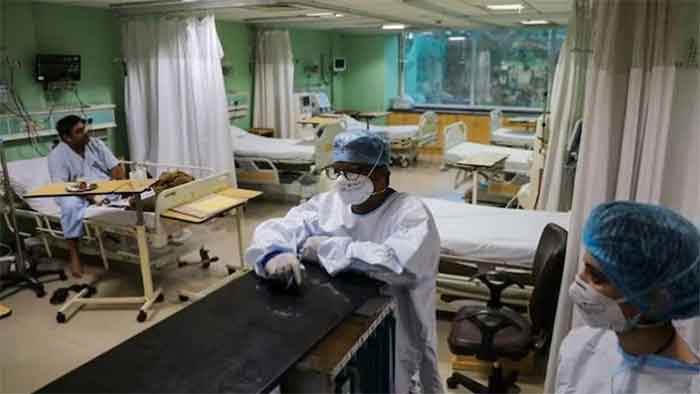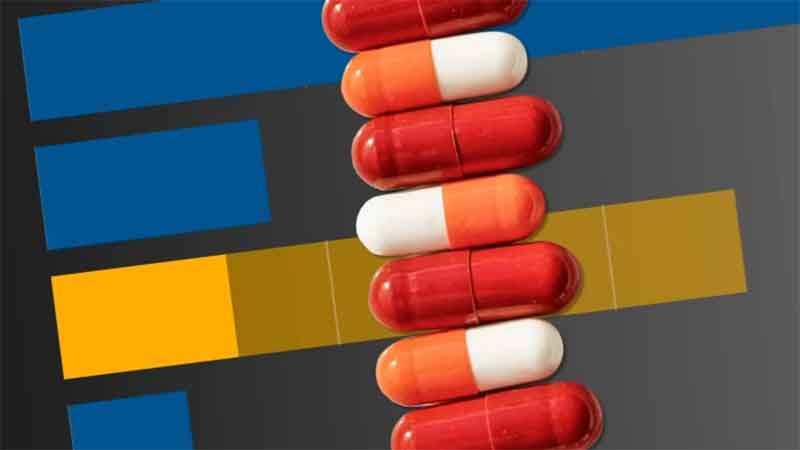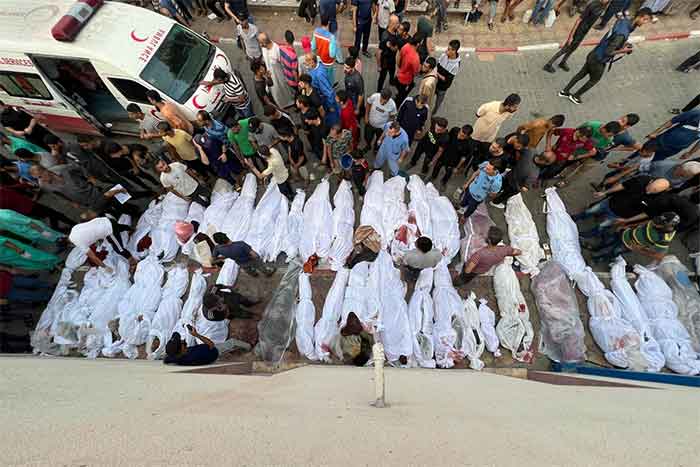
The fifteenth Kerala General Assembly has passed the Public Health Bill without discussion following opposition uproar, which will fuel further marketization of the health sector and strong regulations and enforcement by the state government. The Bill reached the Legislative Assembly with notes from five Members of the Legislative Assembly (MLAs) expressing disagreement with the Select Committee’s recommendations that warned about the possibility of serious human rights violations and centralized power exercise. Doctors of the AYUSH department had earlier expressed concern that the health sector will be under the control of Modern medical treatment, however, major organizations are now welcoming the Bill with a few marginal amendments made by the Legislative Select Committee. Under the guise of the World Health Organization’s One Health approach, Kerala is preparing to impose stronger government restrictions and penalties than what happened during the initial year of the COVID pandemic.
The new bill is designed as a unified public health activity for the state as the last 64 years, the state was being governed by two acts namely Travancore Cochin Public Health Act, 1955, and Madras Public Health Act, 1939. Earlier on 23rd February 2021 the draft of the bill was published as an extraordinary gazette on Feb 24th and the Minister for Health and Social Justice presented this in the 15th Kerala assembly on October 27th, 2021. This was then discussed and entrusted to a 15-member Select Committee for detailed study and advice. Many objections were raised during the public hearing of the Bill when it was conducted in four zones of Kerala under the leadership of the Health Minister who is the Chairperson of the Select Committee. Complaints were raised that not only was the public debate on such an important bill so centralized, but the programme of the public hearing was not properly communicated to the people for effective participation. Also, media persons were excluded from the discussions held there and video recording was prevented, which caused a lot of controversies.
A bill to strengthen the power of the State
There are fears that the present bill is designed to empower the state to constrain the autonomy, privacy, liberty, proprietary or other legally protected interests of individuals to protect or promote community health. And also this is in addition to the much controversial Epidemic Disease Bill-2021 which replaces the Epidemic Disease Act, 1897 in March 2020 in the context of the COVID pandemic.
The Bill creates a three-tier public health system at the state, district, and local levels, and designates existing health officials as public health officers. The Director of Health Service (DHS) will be the state public health officer and the respective District Medical Officer (DMO) will be the district public health officer. The medical officer appointed as the health officer of the local self-government institution concerned will be the local Public Health Officer. The State Public Health Samithi, the body including various medical practitioners of AYUSH will stipulate conditions for declaring a public health emergency. The Bill provides measures for controlling communicable and non-communicable diseases, along with managing water supply, waste management, vector control, and other issues which were earlier dealt with by the local self-government departments, Food Safety Department, etc.
Lack of adequate safeguards for data collection and processing
Under the Bill, there are several provisions for health authorities and medical practitioners to collect health data of individuals. It can be said in the light of past experiences of data hacking/leakage/transfer in India that private companies are very likely to capture and misuse the personal information of citizens. Further, every medical practitioner and healthcare establishment will be required to provide data to the Local Authority or the District Authority on any disease of public health importance, contravening such provisions will lead to a penalty. Medical practitioners are also required to furnish reports on communicable and notifiable communicable diseases to the Local Authority and forward this data to Surveillance Officers. Adding more concerns, the Bill does not specify safeguards for such data collection and processing.
Is this the need of the hour?
The preamble of the draft states that this Bill is intended to replace the existing laws relating to public health of the State of Kerala by incorporating changes and needs from time to time in view of climate change and the frequent spread of zoonotic disease. While humans and the health of the ecosystem are facing extraordinary challenges, a new health policy is surely the call of the hour. But it has to be drafted and implemented with the utmost care, and a deep understanding of the social and ecological crisis and also ensure public participation in its formulation. This has been completely undermined by the executive.
Another point mentioned in the preamble is that such a bill is needed because public health needs to adopt a One Health approach to strengthen the social systems that provide health beyond diagnosis and treatment and to weaken and eliminate the conditions that cause diseases. But when we go into the provisions of the bill, we will understand that this spirit has not been included. The provisions of this bill have been prepared without considering the socio-economic and political conditions that render due importance to the social determinants of health. The new bill provisions are limited to a regulatory approach without exploring possibilities like service approach and health education. Instead, enforcement of the law through the exercise of powers, fines, etc., and the implementation of protocol during the pandemic are of prime emphasis in various ways throughout the bill.
Also, the bill says that while fighting new viruses, pathogens, endemic and pandemics that come in as part of climate change, human-animal contact, etc., it is also necessary to prevent and control the increasing lifestyle diseases. But on the basis of the new realizations and wisdom that should help to deal with the vulnerable situation, initiatives to restore the relationship between Man and Nature, decentralization of the health system, and consideration for diversity as a core value should have been incorporated. The fact that the Bill does not provide anything to prevent the increasing commercialization of the health sector, along with the disregard for medical ethics, and the absence of measures to prevent the increasing use of drugs and to bring down treatment costs, will only serve to further the existing crisis in the health sector of Kerala.
Centralization of authority in the Public Health Officer
State and District Local Public Health Committees and Public Health Officers are the bodies responsible for implementing the provisions of this Act. The Director of the Health Department will be the Member Secretary of the Committee and the State Public Health Officer. The Minister of Health is the Chairperson. At the district level, the District Medical Officer will be the District Public Health Officer. At the Gram Panchayat level, the Medical Officer of the Health Department will be responsible for this role. This provision is also followed at the Municipality/Corporation levels. Although a local Public Health Samithi has been formed, the provisions of the bill give excessive powers to the local Public Health Officer (PHO). An example of this is the provision that the PHO can inspect houses and apartments with two hours’ prior notice and at other places without notice at any time.
PHOs are also empowered to impose conventional (allopathic) medicine treatment modalities on the entire population without considering the effective coordination of various alternative treatment modalities, including treatment protocols with the potential for abuse of power. Inspections, issuing notices, taking legal action, levying fines etc. are going to take place in Kerala extensively in the name of public health care with the help of the police. Fines and other fees collected shall be deposited in the Public Health Fund and the provisions also authorize the local PHO to vacate the charge on payment of a fine before or after the commencement of prosecution of any offense other than an offense punishable with imprisonment. Also, a citizen cannot file a petition in a civil court against the Public Health Officer, the Public Health Committee, or any other officer enforcing this Act. To increase the possibilities of human rights violations, the Bill does not define the possible malicious abuse of power by the Local Public Health Samithi and the Public Health Officer, or specify the method of investigation for such cases remains a key concern.
Concerns of AYUSH Consortium
The ‘AYUSH Ikyavedi’, the consortium of professional associations representing alternative health care systems in the state had alleged that the Public Health Bill would completely eliminate the diverse Indian medical system from the State. Now one section of them is content with the new Bill. But it is still uncertain whether a person can opt for Ayurveda, Yoga, Unani, Siddha, or Homeopathic systems to treat communicable and non-communicable diseases as per the protocol issued by the State level Public Health Officer from time to time. The provisions have not been changed in such a way that the ultimate decision-makers will not be a group of people who reinforce modern medicine in the protocol without considering alternative options. Although services provided by AYUSH medical practitioners in the field of public health are not directly denied under the scope of the new public health bill, one only needs to examine the experience of Kerala during the Covid period to understand that the authority system including Public Health Officers and Health Inspectors will effectively keep other medical fields away from intervening in the public health matters.
“On the face of it, this bill appears to be progressive. But this bill is over-regulatory in many areas and undermines the uniqueness and growth of various medical disciplines. We are in a situation where our multi-disciplinary collaboration is essential to simultaneously reduce the dual burden of infectious diseases and lifestyle diseases. There will be unnecessary reliance on labs for even minor ailments as the bill comes into effect. One must be careful not to reduce One Health to One Medicine. It will make it impossible to live without health insurance as it happens in America to be able to afford medical expenses. The demands of the insurance lobby will be met through this new Bill.’’ warns Dr. Praveen T Dharmaratnam, a health activist from Kerala.
The Neoliberal trends in government policies
“The subject of this bill was discussed in person by most of the Members of the Legislative Assembly (MLAs) who were members of the Select Committee – It was understood that most of them did not consider this bill as a serious matter in the beginning. Some MLAs had mistakenly said that if the World Health Organization (WHO) funds are to be sanctioned, there should be a uniform protocol and neither Homeopathy nor Ayurveda is suitable for that.” Dr. Praveen T Dharmaratnam shares his experience.
It was only after the Second World War that multinational corporations and international financial institutions such as the World Bank encroached on the sovereignty of nations and forced governments to make laws and policies to suit their economic interests. The very concept of a welfare state was being sabotaged as the power of the governments in India began to move according to the will of the global economic powers following neo-liberal policies. Even the left political organizations have not raised as many objections as it did in the beginning when corporations started, directly and indirectly, interfering in most of the government’s activities like health, education, agriculture, public sector, and social welfare programs. Thus, ‘Structural Adjustments’, a set of economic policies, including reducing government spending and opening up to free trade became a declared policy of economic reforms that a country must follow in order to secure a loan from institutions like the International Monetary Fund and the World Bank. This can be seen if we look at some of the policies implemented by the Central Government and the Kerala Government in recent times. Permission for open field trials of genetically modified mustard in India, plan to solve nutritional poverty with fortified rice, KPMG being appointed as consultant for Rebuild Kerala Initiative, preparations for fourth industrial revolution, Covid mass vaccination carried out despite warnings of modern medicine doctors, etc. were the result of governments compromising to the conditions of financial institutions such as the World Bank. The role of the World Health Organization and its dominant organizations like the Bill Gates and Melinda Foundation should also be examined in the case of the Kerala Public Health Bill 2023 which has just passed.
Considering the unrestrained exercise of power over the common man’s life by the State and giant Corporations during the peak Covid period in the name of epidemic control as a mock drill, the Kerala Public Health Bill 2023 gives full license to them to enforce those mechanisms permanently now.
A K Shiburaj is an independent journalist and researcher from Kerala
The article is originally published in www.keraleeyammasika.com














































